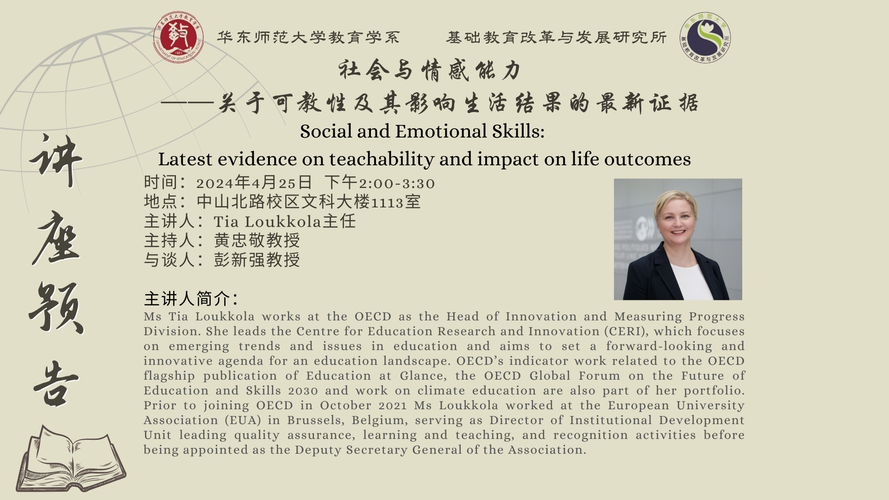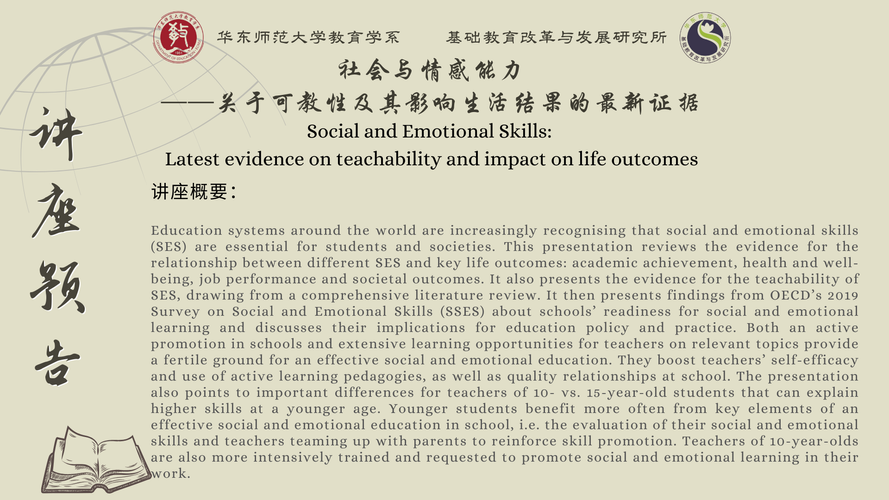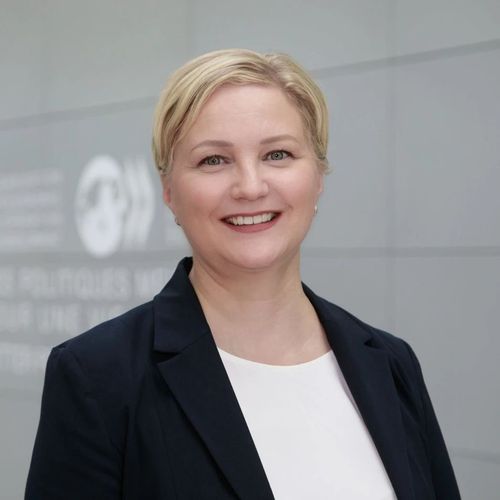

主题
社会与情感能力——关于可教性及其影响生活结果的最新证据
主讲人
Tia Loukkola主任
与谈人
彭新强教授
主持人
黄忠敬教授
时间
2024年4月25日 下午2:00-3:30
地点
文科大楼1113室
主讲人简介

Ms Tia Loukkola works at the OECD as the Head of Innovation and Measuring Progress Division. She leads the Centre for Education Research and Innovation (CERI), which focuses on emerging trends and issues in education and aims to set a forward-looking and innovative agenda for an education landscape. OECD’s indicator work related to the OECD flagship publication of Education at Glance, the OECD Global Forum on the Future of Education and Skills 2030 and work on climate education are also part of her portfolio. Prior to joining OECD in October 2021 Ms Loukkola worked at the European University Association (EUA) in Brussels, Belgium, serving as Director of Institutional Development Unit leading quality assurance, learning and teaching, and recognition activities before being appointed as the Deputy Secretary General of the Association.
讲座概要
Education systems around the world are increasingly recognising that social and emotional skills (SES) are essential for students and societies. This presentation reviews the evidence for the relationship between different SES and key life outcomes: academic achievement, health and well-being, job performance and societal outcomes. It also presents the evidence for the teachability of SES, drawing from a comprehensive literature review. It then presents findings from OECD’s 2019 Survey on Social and Emotional Skills (SSES) about schools’ readiness for social and emotional learning and discusses their implications for education policy and practice. Both an active promotion in schools and extensive learning opportunities for teachers on relevant topics provide a fertile ground for an effective social and emotional education. They boost teachers’ self-efficacy and use of active learning pedagogies, as well as quality relationships at school. The presentation also points to important differences for teachers of 10- vs. 15-year-old students that can explain higher skills at a younger age. Younger students benefit more often from key elements of an effective social and emotional education in school, i.e. the evaluation of their social and emotional skills and teachers teaming up with parents to reinforce skill promotion. Teachers of 10-year-olds are also more intensively trained and requested to promote social and emotional learning in their work.
